148 – Updates on Detecting Growth Hormone Abuse from the PCC’s Collagen Turnover Working Group – Andy Hoofnagle, MD, PhD
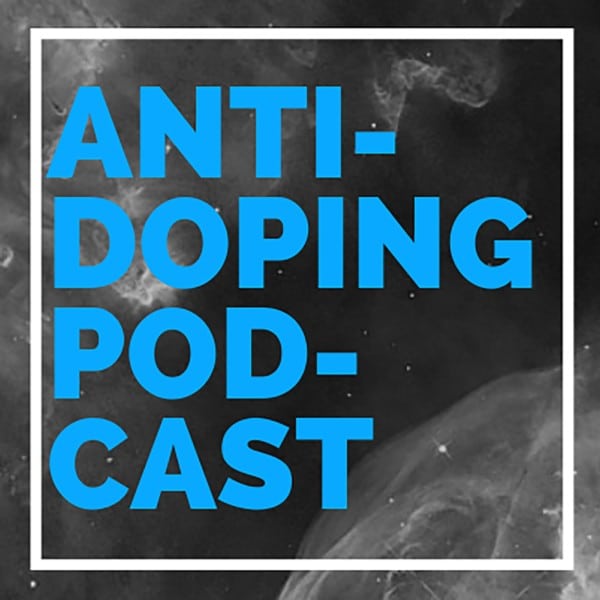
Dr. Andy Hoofnagle is a researcher, professor, board certified pathologist, and laboratory director at the University of Washington. He is Head of the Division of Chemistry, Director of Chemistry at the UW Medical Center – Montlake, Director of Clinical Mass Spectrometry, and Director of the Nutrition Obesity Research Center’s Analytic Core at the University of Washington. He is also Chair of the PCC’s Collagen Turnover Working Group. In this episode, he discusses his research and recent advances in the ability to detect growth hormone administration using biomarkers of collagen turnover. We also discussed Dr. Hoofnagle’s role as a mentor for PCC Research Fellow Dr. Huu Hien Huynh and his experience as a presenter at our 2025 PCC Conference.
Support This Podcast
Interested in sponsoring the Anti-Doping Podcast or have a guest recommendation?
75 – Insights on Anti-Doping from USADA’s General Counsel – Jeff Cook, JD
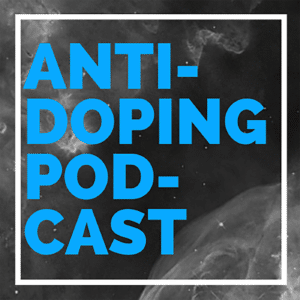
Jeff Cook is the General Counsel for the U.S. Anti-Doping Agency (USADA), where he leads USADA’s legal and investigative staff as well as the legal department’s arbitration and legal cases. He joins us in this episode to discuss his experiences and his role in fighting doping in sport.
74 – Nordic Skier Advocates For Athletes and Anti-Doping – Noah Hoffman

Noah Hoffman is a two-time Olympian. He competed for Team USA in Nordic skiing before moving on to become an advocate for athletes, both in a personal capacity and as a board member of the group Global Athlete, as well as an Athlete presenter for the Education Team at USADA. Noah joined us in this episode to talk about how doping affects athletes and how it shaped him into the advocate he is today.
73 – Innovative Approaches for Detecting Anabolic Androgenic Steroid Abuse – Fred Schaufele, PhD

Dr. Fred Schaufele is a Professor at the University of California, San Francisco and a Co-Founder at XCellAssay. He’s a research scientist with extensive knowledge and capabilities in a broad variety of biochemical, molecular, and cellular fields. In this episode, Dr. Schaufele discusses recently completed PCC-funded research on detecting anabolic androgenic steroids, specifically in amateur sporting populations.
72 – In-Depth Review of the WADA Prohibited List – Olivier Rabin, PhD

Dr. Olivier Rabin is the Senior Director of Science and Medicine at the World Anti-Doping Agency (WADA). Among his many responsibilities are overseeing the List of Prohibited Substances and Methods as well as the Athlete Biological Passport. He joins us today to talk about the WADA Prohibited List and changes for 2022.
71 – Investigating the Athlete Exposome and its Importance for Drug Testing – Mario Thevis, PhD

Dr. Mario Thevis is Professor and head of the Centre for Preventive Doping Research at the German Sport University of Cologne. He is also Director of the European Monitoring Center for Emerging Doping Agents (EuMoCEDA), a forensic chemist, Editor and Chief of the journal Drug Testing and Analysis, and a Research Scientist with the Partnership for Clean Competition. In this episode, Mario discusses new research focusing on the athlete exposome.
70 – Identifying Protective Behaviors in Athletes to Promote Anti-Doping Adherence – Lindsay Duncan, PhD

Dr. Lindsay Duncan is a professor in the Kinesiology and Physical Education Department at McGill University in Montreal. She specializes in health psychology, health communication, and health interventions. She joins us in this interview to talk about new research focused on guiding athlete behavior in the anti-doping space, specifically investigating athlete protective behaviors.
69 – A Look Inside iNADO and Review of Anti-Doping Research – Jorge Leyva

Jorge Leyva serves as the CEO of the Institute of National Anti-Doping Organisations, also known as iNADO. The organization provides advocacy and support for national anti-doping agencies all over the world. Jorge joins us today to discuss iNADO operations as well as a recent review that the organization conducted regarding the last few decades of anti-doping research.
68 – The Critical Role of Whistleblowers in the Fight Against Doping – Günter Younger
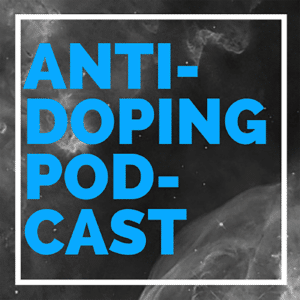
Günter Younger works as the Director of Intelligence and Investigations for the World Anti-Doping Agency (WADA). He comes to the position from a background in law enforcement. In this episode, Günter joins us to talk about the role of whistleblowers in anti-doping, steps being taken to protect whistleblowers, and confidential resources available for people to report suspected wrong-doing in sport.
67 – USADA’s Commitment to Athlete and International Relations in Anti-Doping – Allison Wagner

Allison Wagner serves as the US Anti-Doping Agency’s first Director of Athlete and International Relations. She was formerly an All-American, Olympic, and World Champion swimmer, and her accomplishments include a silver medal in the Atlanta Olympic Games and a former world record set in the World Championships in Palma de Mallorca. Now, Allison is using her experience as an athlete to serve as a voice for others. She joins us in this episode to discuss her role in anti-doping.
66 – Advancing Our Ability to Detect Blood Doping – Nicolas Leuenberger, PhD

Dr. Nicolas Leuenberger conducts research for the Swiss Anti-Doping Lab and the University of Lausanne. His research has traditionally focused on blood doping, and he has also done extensive work on identifying biomarkers in dried blood spots. Nicolas joins us in this episode to discuss his haematological research and his thoughts on the future of detection methods for blood doping.
65 – An Inside Look at the World Anti-Doping Agency’s Athlete Committee – Ben Sandford
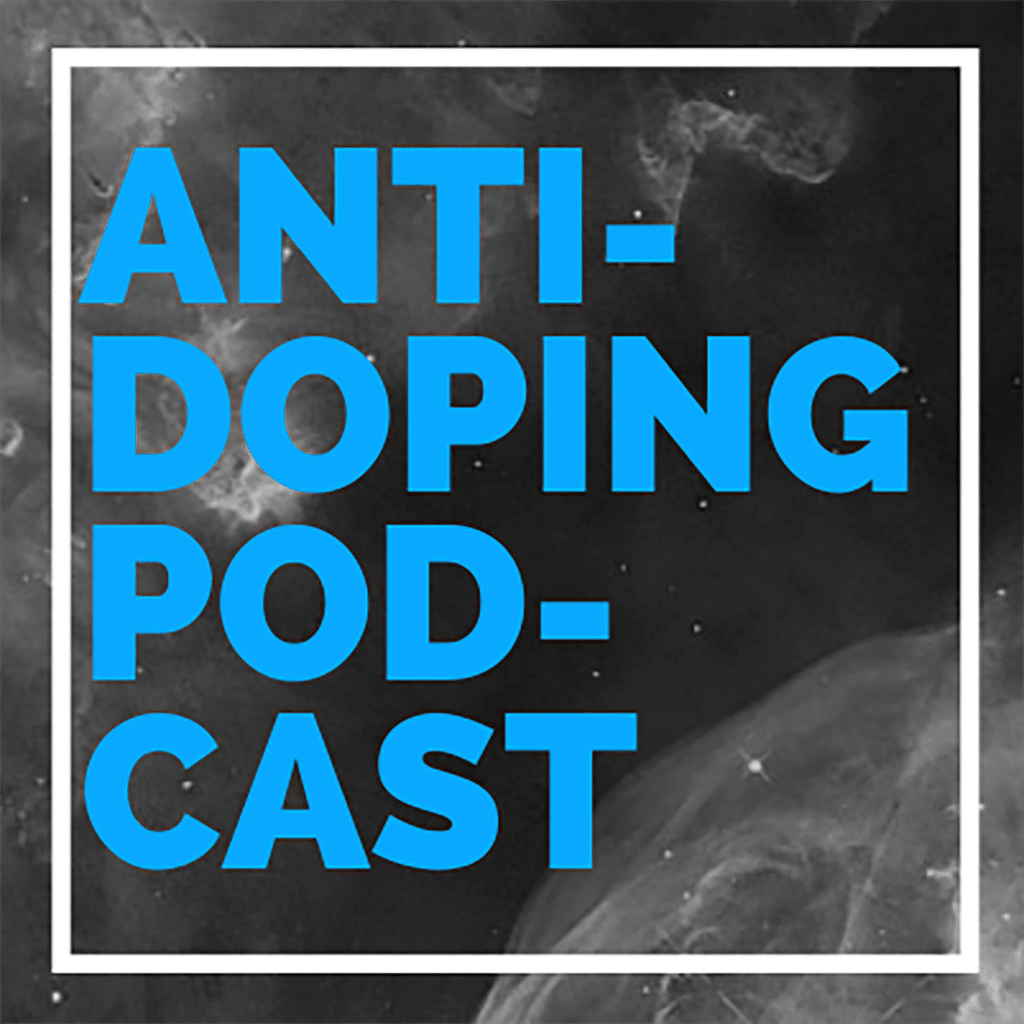
Ben Sandford is a three time Olympian competing in skeleton racing for New Zealand, and he received the Bronze Medal at the 2012 Bobsleigh and Skeleton World Championships. Since wrapping up his athletic career in 2014, he has become the chair of the World Anti-Doping Agency (WADA)’s Athlete Committee. He is also a Member of the New Zealand Olympic Committee Athlete Commission and an attorney with Sandford & Partners. Ben joins us to discuss his experiences and WADA’s efforts to integrate the athlete voice.
64 – Developing Novel Anti-Doping Assays to Monitor Collagen Turnover – Andy Hoofnagle, MD, PhD
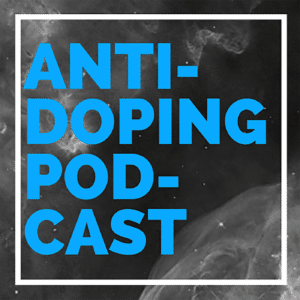
Dr. Andy Hoofnagle is a researcher, professor, board certified pathologist, and laboratory director at the University of Washington. Dr. Hoofnagle’s laboratory focuses on research and development of novel biomarker assays that use mass spectrometry. Andy joins us in this episode to discuss his work in anti-doping, specifically with a focus on the development of assays to measure markers of collagen turnover for anti-doping applications.
63 – How to Secure Anti-Doping Research Funding – Annette Salmeen, PhD

Dr. Annette Salmeen was a 1996 Olympian and gold medalist in swimming. In 2005, she was elected as an athlete member of the USADA Board of Directors, and she served on the board until 2012. Currently, Annette is a lecturer and Core Course Coordinator in the Human Biology Program at Stanford University, and she’s also a member of the Partnership for Clean Competition’s Scientific Advisory Board. In this episode she discusses best practices for applying for anti-doping research grants from the PCC.
62 – The Anti-Doping Agency of Kenya’s Commitment to Clean Sport – Sarah Shibutse

Sarah Shibutse is the Director of Standards and Compliance at the Anti-Doping Agency of Kenya (ADAK). She served as a joint secretary to the Anti-Doping Task Force that was set up by the Ministry of Sports to investigate the extent of doping in Kenya. In this episode, we discuss the findings of this Task Force and the history of ADAK. Sarah shares what it was like creating a national anti-doping organization from the ground up, current challenges they are facing, their goals for the future, and more.
61 – Delivering Innovative Solutions to Fight Doping and Other Sport Integrity Issues – Dominic Mueser
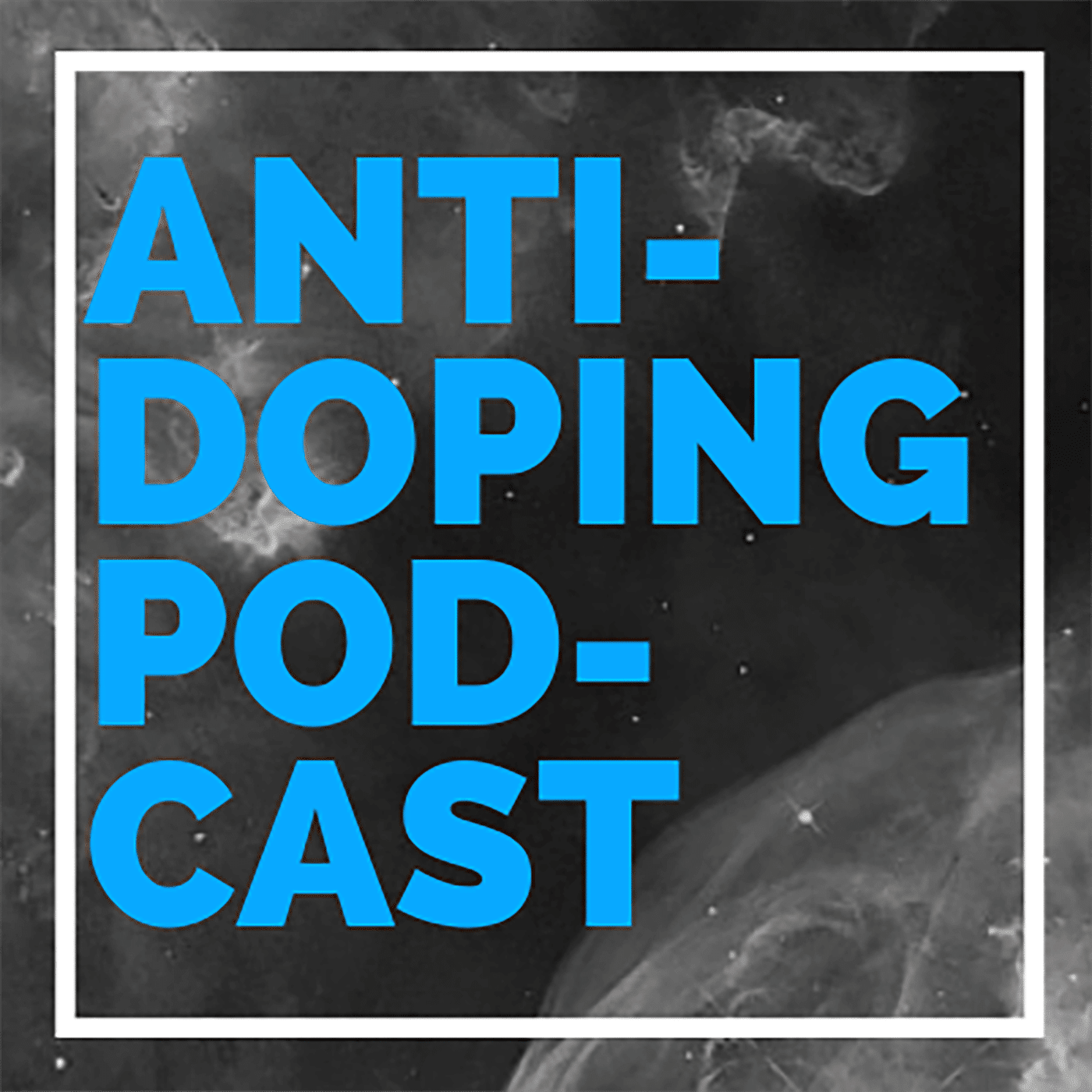
Dominic Mueser has worked in anti-doping for more than a decade, much of it with Germany’s national anti-doping agency. Today, he works at Sportradar, where he serves as the Global Head of Anti-Doping Services. Sportradar primarily collects and analyzes sports data, providing information to everyone from international sports federations to bookmakers. Dominic joins us in this episode to discuss Sportradar’s role in the anti-doping space and how data can be used to help ensure clean sport.
60 – Leading Rigorous Anti-Doping Efforts in Canada – Jeremy Luke

Jeremy Luke is Senior Director of Sport Integrity at the Canadian Center for Ethics in Sport (CCES), the Canadian national anti-doping organization (NADO). He also led the anti-doping program for the Vancouver Olympic and Paralympic Games in 2010. Jeremy joins us in this episode to talk about CCES, discuss how NADO’s have been dealing with the pandemic, and share his insights into what it takes to run anti-doping efforts during the Olympic and Paralympic Games.
59 – Developing New Activity-Based Bioassays to Screen for HIF Stabilizers – Liesl Janssens
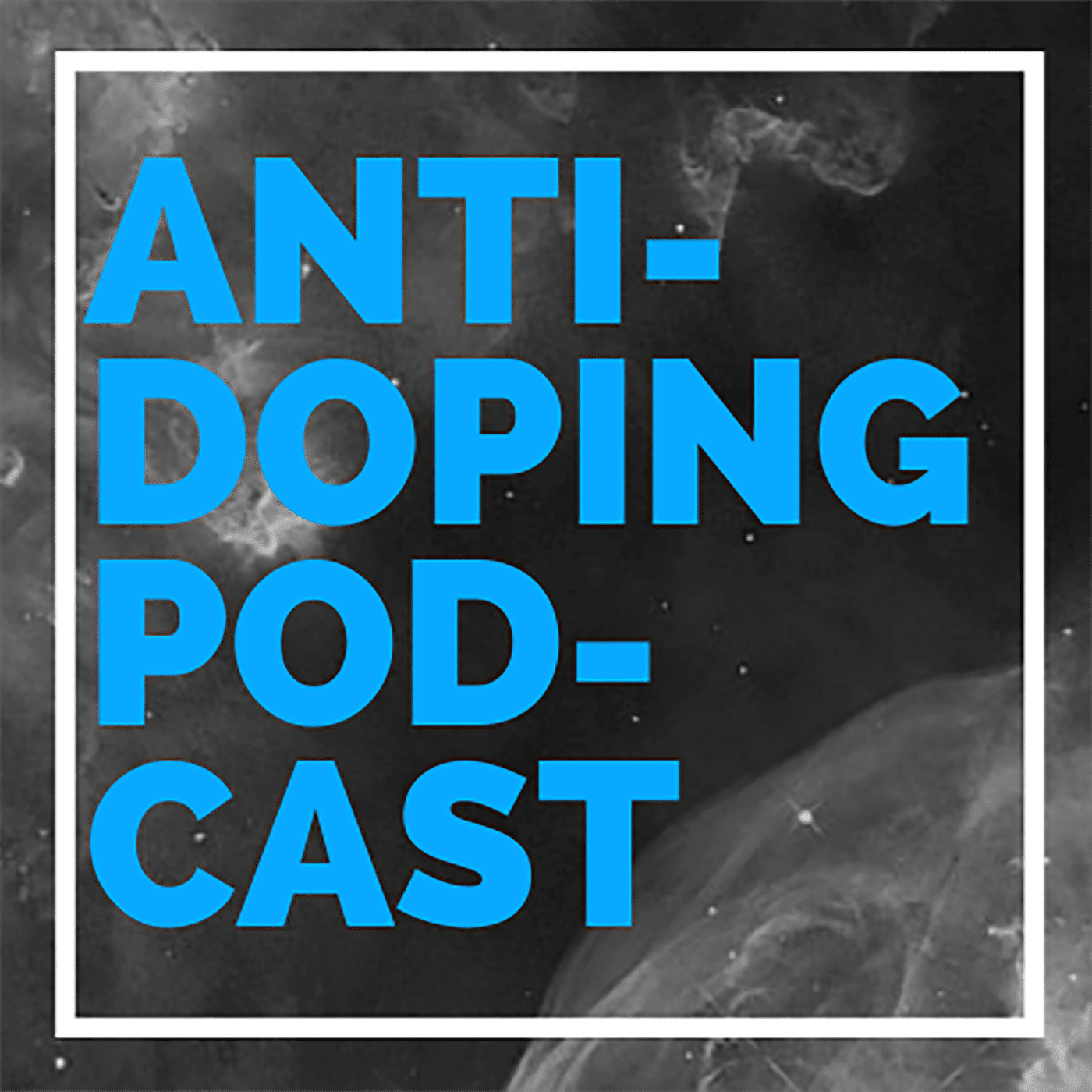
Liesl Janssens is a PhD student in the Lab of Toxicology at Ghent University. Her virtual poster was a finalist in the PCC’s 2021 virtual poster session in the category of Pilot Studies. She is developing novel activity-based bioassays to screen for performance enhancing hypoxia-inducible factor (HIF) stabilizers. HIF stabilizers are small molecules that help to produce more blood cells by stimulating endogenous erythropoietin production. She shares more about this project and her work in this episode.
58 – Cycling Benefits from New Partnership with the International Testing Agency – Olivier Banuls

Olivier Banuls served as the director for the Cycling Anti-Doping Foundation (CADF), and he is now working with the International Testing Agency (ITA) to help fight doping in cycling. He joins us in this interview to talk about the ITA and their new anti-doping efforts in the sport of cycling in collaboration with the Union Cycliste Internationale (UCI). This is the second of our two-episode mini-series taking an in-depth look at anti-doping in cycling, in conjunction with the Tour de France this month.
57 – UCI’s Dedication to Advancing Clean Sport in Cycling – Amina Lanaya

Amina Lanaya is the Director General for the Union Cycliste Internationale (UCI). She joins us in this episode to discuss UCI’s history, current anti-doping issues in cycling, UCI’s recent partnership with the International Testing Agency (ITA) to help combat doping in cycling, and more. This is the first episode of our two-part mini-series focused on anti-doping in cycling in conjunction with the ongoing Tour de France.
56 – JADA’s Role in the Tokyo 2020 Games and Legacy Projects – YaYa Yamamoto, PhD

Dr. YaYa Yamamoto is the Senior Manager of Education & International Relations at the Japan Anti-Doping Agency (JADA). JADA has been critical in helping prepare for the Tokyo Olympic and Paralympic Games, and Dr. Yamamoto has been leading JADA’s initiatives to deliver sporting values-based and anti-doping programs. She is also a member of WADA’s education committee and the International Testing Agency (ITA) International Expert Group. We discuss JADA, the upcoming Games, and more in this episode.
55 – Improving Anti-Doping and Integrity in Biathlon – Greg McKenna
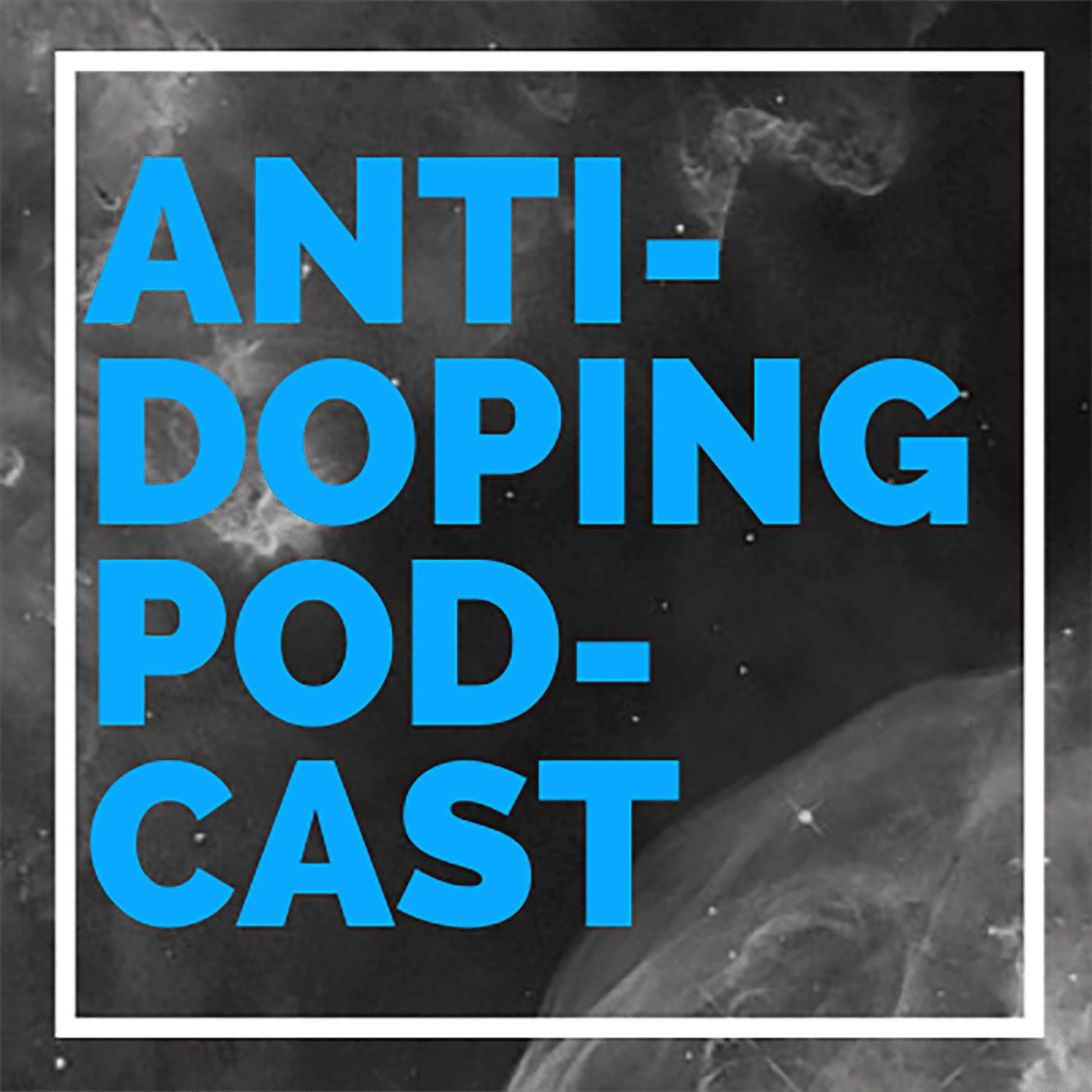
Greg McKenna brings a rich background in investigation and law enforcement to his current position as Head of Biathlon Integrity Unit. In this episode, Greg discusses biathlon, doping concerns for biathletes, recent changes in the sport, development of the Biathlon Integrity Unit, and how he is applying his unique experiences to help continue to develop and refine anti-doping and integrity efforts in biathlon.
54 – An In-Depth Look at Anti-Doping Law and Arbitration – Janie Soublière

Janie Soublière is a sports lawyer and arbitrator. She’s done arbitration and legal work for everyone from the International Court of Arbitration for Sport (CAS) to the Ultimate Fighting Championship’s Anti-Doping Panel. In this episode, Janie discusses her wide array of experiences working on anti-doping cases, tribunals, and arbitration panels. She walks us through the arbitration process for anti-doping cases and shares her insights on some of the next big challenges for anti-doping law.
53 – Enhancing Anti-Doping and Safety in Horseracing – Jim Gagliano

Jim Gagliano is the President and Chief Operating Officer of The Jockey Club, the breed registry for all thoroughbred horses in North America. He also sits on a number of councils and boards related to horse racing. In this episode, we discuss horse racing’s approach to anti-doping, current anti-doping and safety priorities, and recent changes over the past year as a result of some high-profile cases and new legislation.
52 – Developing Molecularly Imprinted Polymers for Anti-Doping – Rachel Hand, PhD

Dr. Rachel Hand is a Research Fellow in Polymer Chemistry at The University of Warwick. In this episode, Dr. Hand discusses her work in the area of advancements in molecularly imprinted polymers and their role in anti-doping as well as her experiences working with the PCC on a recent research project. Plus, we talk about social media and its role in facilitating scientific collaboration in clean sport.
51 – Anti-Doping Efforts and Recent Changes in Weightlifting – Phil Andrews

Phil Andrews is the Chief Executive Officer of USA Weightlifting. He has brought about significant reform to weightlifting internationally, especially in the area of anti-doping. In this episode, he discusses USA Weightlifting’s anti-doping efforts, recent controversy with the International Weightlifting Federation, implications for participation in the Olympic and Paralympic Games, and the way forward for the sport to ensure clean competition.